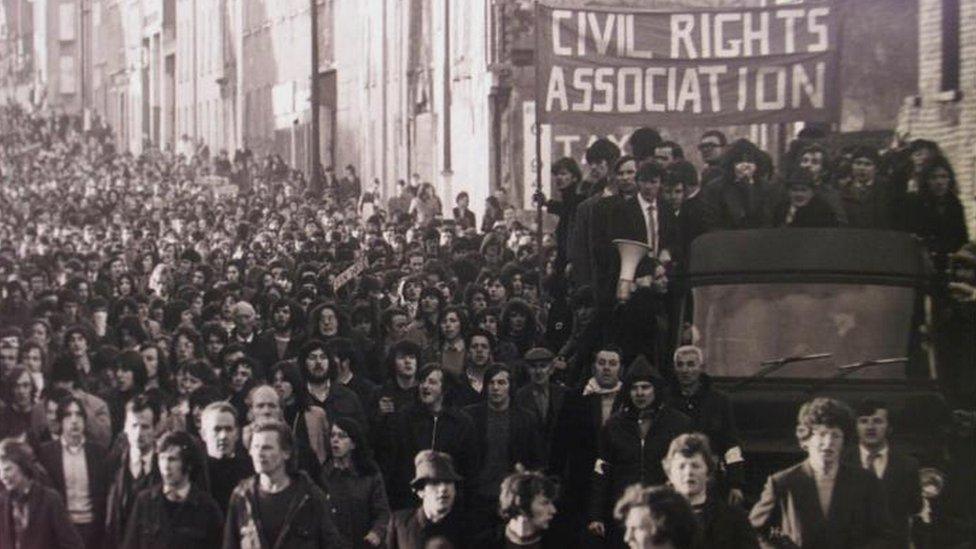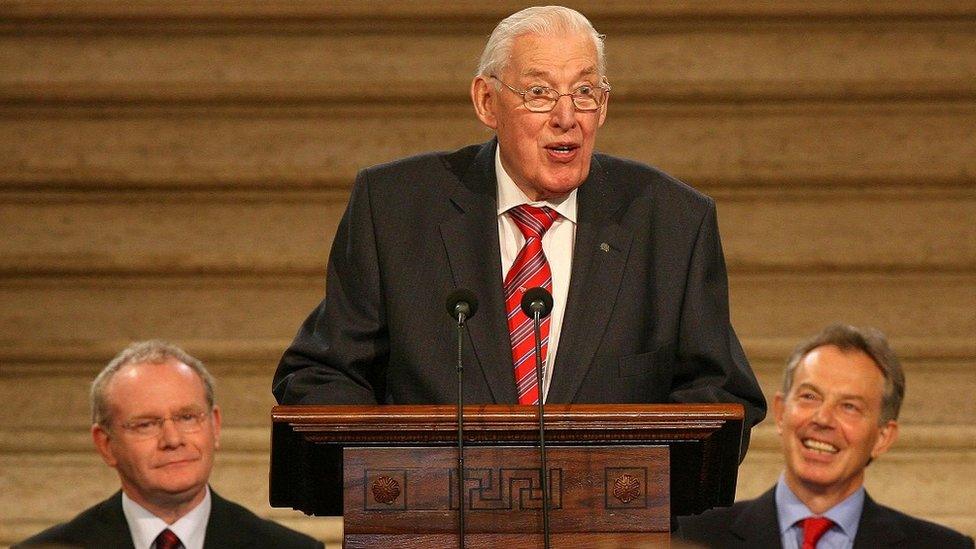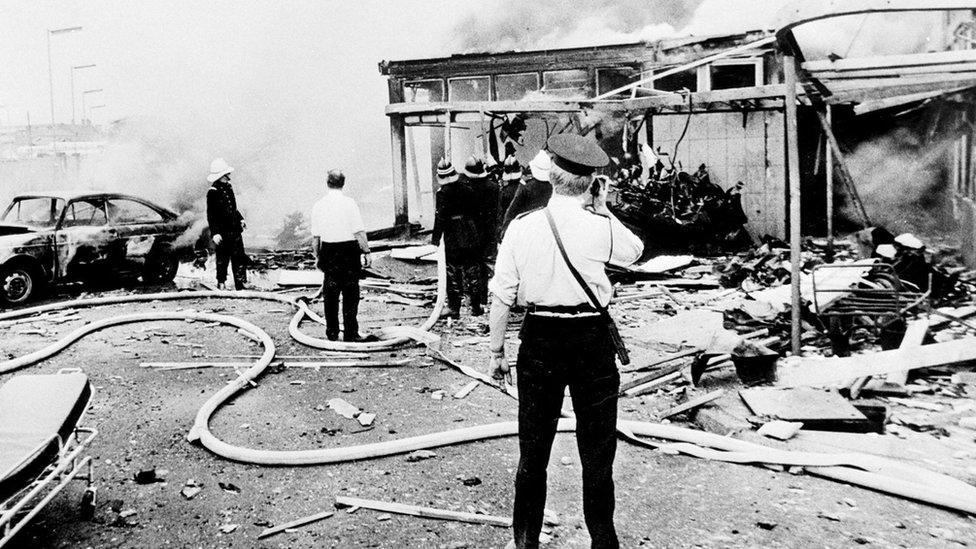GCSE history: NI teachers reject criticism of lessons
- Published

Pupils can study the changing relations between NI and its neighbours during the years 1920-1949, or the years 1965-1998
A body representing some NI history teachers has criticised "misconceptions" in a widely-reported study of how the subject is taught.
The History Teachers Association (HTANI) said a Parallel Histories study was "based on an informal survey, not official figures".
It said criticism of GCSE teaching did a "disservice to the many risk-taking history teachers".
Parallel Histories said all pupils should study the recent history of NI.
It is a charity that looks at how the history of conflict is taught and its survey looked at what periods of Northern Irish history pupils studied for GCSE.
There are two relevant options on the GCSE History curriculum set by the Council for the Curriculum, Examinations and Assessment (CCEA).
Pupils can study the changing relations between Northern Ireland and its neighbours during the years 1920-1949 or the years 1965-1998.
The second option runs from the Civil Rights movement to the signing of the Good Friday Agreement.
The Parallel Histories survey suggested many more Catholic maintained schools chose to study the years 1965-1998 than controlled or "non-Catholic maintained" schools.
The findings were reported in The Guardian, external and the Belfast Telegraph, external, which also carried an article by the charity's founder Michael Davies.

Parallel Histories says pupils in Northern Ireland should be taught history up to the 2007 restoration of Stormont
However, a letter from the HTANI president Dr Alan McCully, on behalf of the association, said that while there was "some substance" to Mr Davies' criticism of the GCSE History curriculum there were also a number of "misconceptions".
The HTANI has almost 100 members in Northern Ireland.
"Avoidance of sensitive and controversial issues has been common in NI and is not confined to history teachers," Dr McCully wrote.
"The reality is that schools from Protestant backgrounds have been switching to the later Troubles period over time as the political situation has evolved."
Dr McCully wrote that presenting pupils with opposing "Protestant" and "Catholic" narratives was a "blunt and dated" approach.
"Thankfully, we now advocate a more complex and nuanced stance, which recognises shades of opinion across the unionist/nationalist continuum and beyond, thus better preparing young people to understand the past and, crucially, to make connections with the present," he said.
"They come to realise that both then and now individuals think for themselves and that views can change over time."
Dr McCully also said that while the Parallel Histories survey had concentrated on GCSE history, the curriculum for pupils aged 11-14 gave a "broader picture" of how history teachers explored conflict.

Parallel Histories found more Catholic maintained schools chose to study the option covering the period of The Troubles
According to the CCEA curriculum, pupils at those ages should be taught "the long and short-term causes and consequences of the partition of Ireland and how it has influenced Northern Ireland today including key events and turning points".
But in response Mr Davies, who went to school in Northern Ireland but is based in England, said that it was time for the GCSE History curriculum to change.
"In the absence of the bigger solution, which would be school desegregation, what we would propose is that the curriculum is rewritten and that at GCSE all students study a longer period of history, including the run up to the foundation of the state and up to 2007, and that they study this from both Catholic and Protestant perspectives," he told BBC News NI.
"Students are then challenged to critically evaluate the source evidence to form their own opinion.
"People worry that that will only harden divisions but in our experience, that has never happened."
'Political labels'
He said that he was not being critical of history teachers but "the educational establishment that has allowed this situation to perpetuate".
Mr Davies also defended the methodology of his organisation's survey, describing the results as "conclusive".
He said the findings were based on data from, or information from the school websites of, 190 post-primaries.
He said he understood why people would want to replace terms like "Catholic" and "Protestant" with "political labels".
"But is that really honest?" he asked.
"Education and politics are divided broadly along religious lines - that's the inconvenient truth and because of that there is no political will to tackle the big problem, which is religiously separate schooling.
"Integrated schools have been around for a quarter of a century but still only account for 7-8% of students."